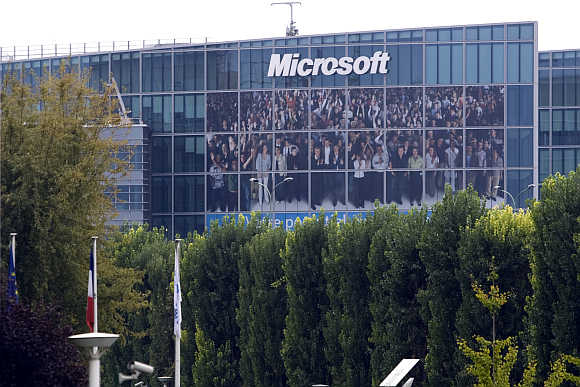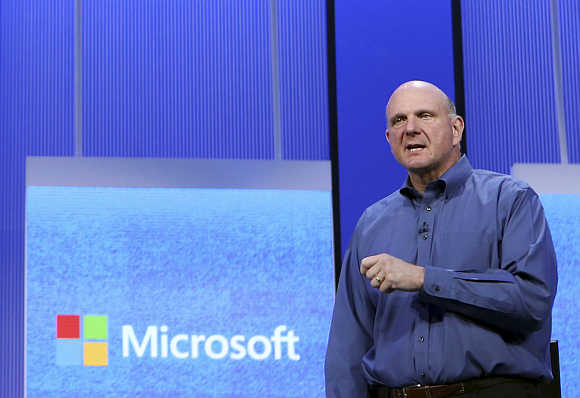
Microsoft boss Steve Ballmer says the software giant must speed up and focus on what customers want. That at least is the gist of two sprawling memos justifying a sweeping restructuring.
Yet the Microsoft organisation now looks more complex. And the company is vague about its purpose. Ballmer is right that the nearly $300 billion Microsoft cannot continue on its current trajectory. The PC market is in free fall.
...

Shipments have dropped for five consecutive quarters, with an 11 per cent decline in the second quarter according to figures just released by Gartner. That hasn't noticeably affected Microsoft yet.
It can only be a matter of time, however, until the company's two cash cows - the Windows operating system and business software like Office, which account for about 80 per cent of profit - eventually suffer. Microsoft was organised into eight divisions based on products such as Windows, Office and Skype.
...

The company's argument that these distinctions are increasingly artificial has merit. Microsoft's tablets and smartphones, for example, must combine its software, online services and other offerings into one complete package.
So Ballmer is right to rethink reporting lines. The company will now have four engineering areas: operating systems, apps, the cloud, and devices. That sounds a sensible way to organise a tech company. But things deteriorate somewhat from there.
Engineering is just one of eight new so-called functions at Microsoft, the others including the likes of "business development and evangelism" as well as more typical groups like finance and legal.
...

Another group called Dynamics - Microsoft's enterprise planning software business - will remain separate. Though it may stop silo-like businesses engaging in unnecessary internal competition, the new organisation still seems likely to frustrate rather than encourage engineers with smart new ideas.
Moreover, even after nearly 6,000 words across the two missives, it's not really clear what Microsoft wants to be. Both memos say, in bold type, that Microsoft should create devices and services that "empower people around the globe at home, at work, and on the go, for the activities they value the most."
Ballmer signs off his screed with a "Let's go." But where to?
...

If Microsoft can't clearly define its destination, a confused organisational structure isn't going to help it get there.
Context news
i) Microsoft said on July 11 that it will reorganise its business to focus on services and devices. It currently has eight divisions: Interactive Entertainment; Business Solutions; Office; Online Services; Server and Tools; Skype; Windows & Windows Live; and Windows Phone.
ii) The company will now organise itself into eight functions: Engineering (including supply chain and data centers); Marketing; Business Development and Evangelism; Advanced Strategy and Research; Finance; Human Resources; Legal and Corporate Affairs; and COO (including field, support, commercial operations and IT). Within engineering, there will be four areas: Operating Systems; Applications and Services; Cloud and Enterprise; and Devices and Studios. Another group, Dynamics, will remain a separate entity.